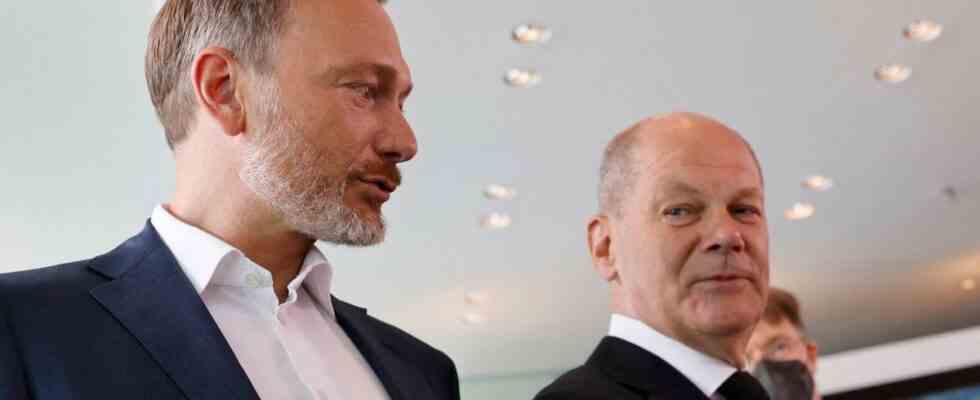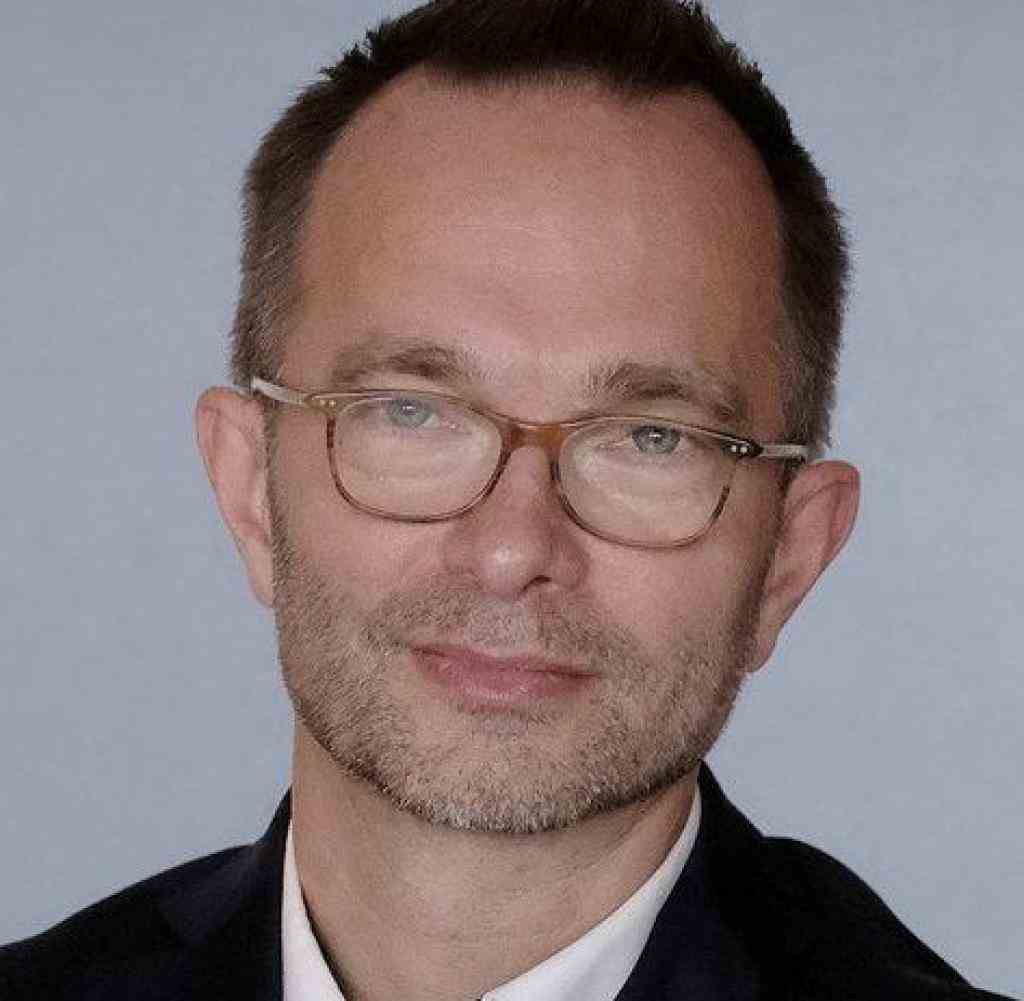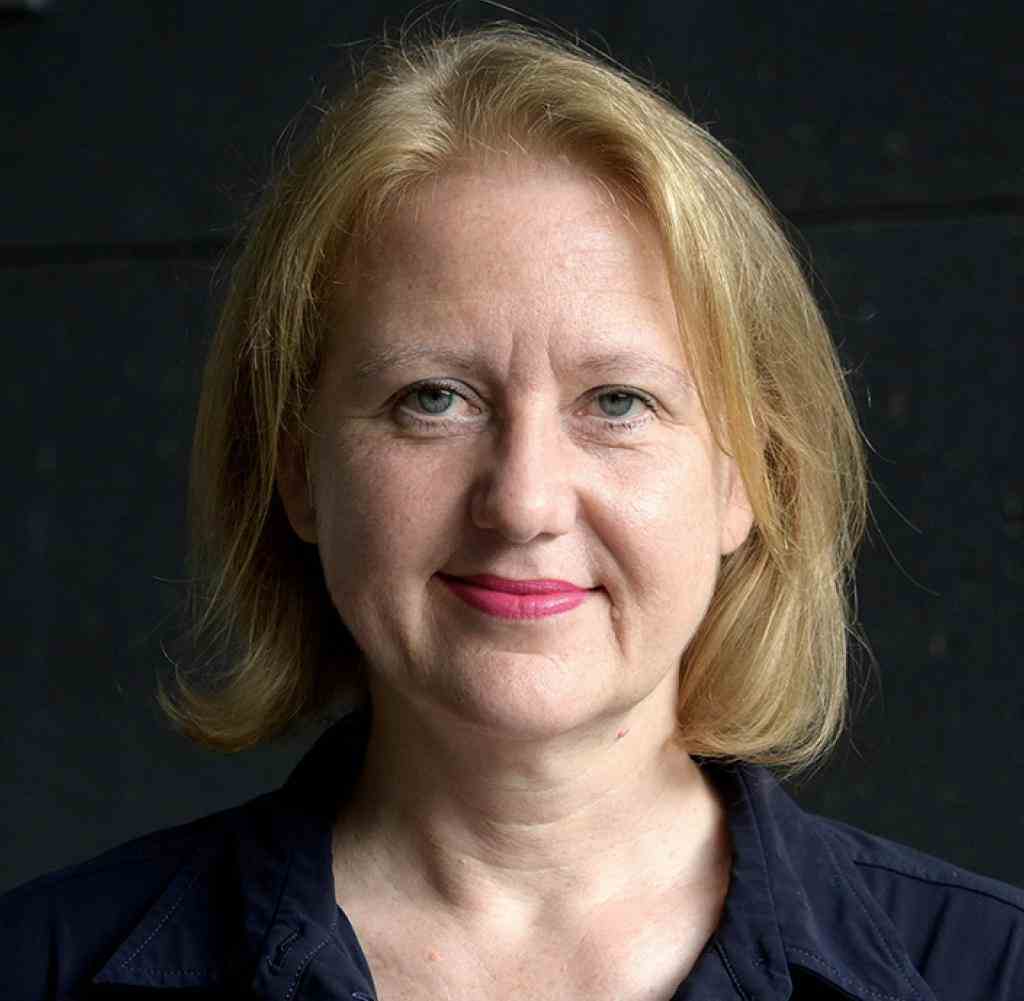BFederal Minister of Finance Christian Lindner wants to relieve the broad middle of society with tax plans to compensate for inflation. That said the FDP politician on Wednesday in Berlin. 48 million people would benefit. The average relief would be 192 euros. Lindner spoke of a tax cut of more than ten billion euros.
Above all, the finance minister wants to compensate for the cold progression. This is a type of creeping tax increase, when salary increases are eaten up by inflation but still result in higher taxation. Higher taxes then apply, although purchasing power does not increase in real terms.
Lindner spoke of a “tax increase through omission”, which he wanted to avert. In addition to an adjustment of the benchmarks in the income tax rate, the finance minister plans to increase child benefit and the child allowance. “This is not about relieving the burden, it’s about waiving the burden,” said Lindner. He was also in favor of the fact that “strong shoulders should carry more than narrow shoulders”. However, the cold progression would also “burden people whose shoulders have not become broader at all”.
The project is controversial in the traffic light coalition, the SPD and Greens are calling for targeted relief for low-income people instead. However, Lindner warned that additional tax burdens are “not fair in the current fragile situation and would also be dangerous for economic development”.
Chancellor Olaf Scholz (SPD) has expressed “fundamental goodwill” for Lindner’s tax plans. A government spokesman said on Wednesday in Berlin. He made it clear that the plans should be seen as part of a larger overall concept that should be developed over the next few weeks in view of the immense cost increases, for example for energy.
The departmental vote is now beginning, the spokesman said. The concept will be developed in such a way that it will find the necessary support from the cabinet. He referred to Scholz’s statements that citizens should not be left alone with the rising prices. In his previous position as finance minister, Scholz corrected the cold progression twice.
Mixed tones from the SPD
SPD chairman Lars Klingbeil described it to the “Spiegel” as “right that Finance Minister Lindner is constructively participating in the debate on relief with his proposals.” Further, targeted relief is needed if the gas levy is added to the increased energy prices from October . “This can also include tax relief,” Klingbeil told the news magazine, even if “the top earners in our country” should not be the focus. Lindner’s suggestions are “a contribution to an overall package that should now be launched quickly.”
Other Social Democrats are more critical of Lindner’s relief proposals. “Another strong relief impulse to the middle of society is right and necessary, but should primarily target people with small and middle incomes,” said the Vice Chairman of the SPD parliamentary group, Achim Post. Lindner’s proposals are “in need of improvement” from the point of view of social justice.
Post also emphasized that a complete dismantling of the so-called cold progression, especially in the current phase of high inflation, would be “extremely expensive and anything but targeted”, since high incomes would benefit particularly strongly from it. “Sticking to the current rate of wealth tax could only partially cushion this effect,” he said, alluding to the FDP’s resistance to tax increases. “The proposed increases in the basic allowance and child benefit are in the right direction, but not enough,” added the SPD finance politician.
He suggested direct payments as an alternative, with which small and medium-sized incomes could be relieved in a targeted manner. However, it is clear that the traffic light coalition of SPD, Greens and FDP will tackle further relief. “However, there is a need for further discussion about the precise and fair design.”
Greens: Plans socially unbalanced
The Greens in the Bundestag had previously criticized the plans as socially unbalanced. “High and highest income groups would receive more than three times as much as people with low incomes, who actually need the relief most urgently,” said parliamentary group leader Andreas Audretsch. In addition, people with very small incomes would not be relieved at all because they paid no income tax below the basic allowance.
The financial policy spokeswoman, Katharina Beck, made a similar statement. “It would be the other way around: strong shoulders would have to carry more than low-income ones and not be disproportionately relieved,” she told the editorial network Germany.
The bill provides that the tax basic allowance from currently 10,347 euros to 10,632 euros in the coming year and 10,932 euros in 2024. The top tax rate, which currently applies to taxable income of EUR 58,597, will only start at EUR 61,972 in the coming year and at EUR 63,521 a year later.
That child support for the first two children in 2023 it will increase by eight euros to 227 euros. For the third child, parents get two euros more, then also 227 euros. For the fourth child it remains at 250 euros. In the following year, the child benefit for the first three children is to increase again by six euros.
In fact, Lindner’s plans have a greater percentage effect on low incomes, but in absolute figures people with high incomes benefit more clearly. A taxpayer with taxable income of 20,000 euros is to be relieved of 115 euros. With an income of 60,000 euros, the relief according to figures from the Ministry of Finance is already 471 euros. With even higher incomes, they remain stable at 479 euros and do not rise any further.



